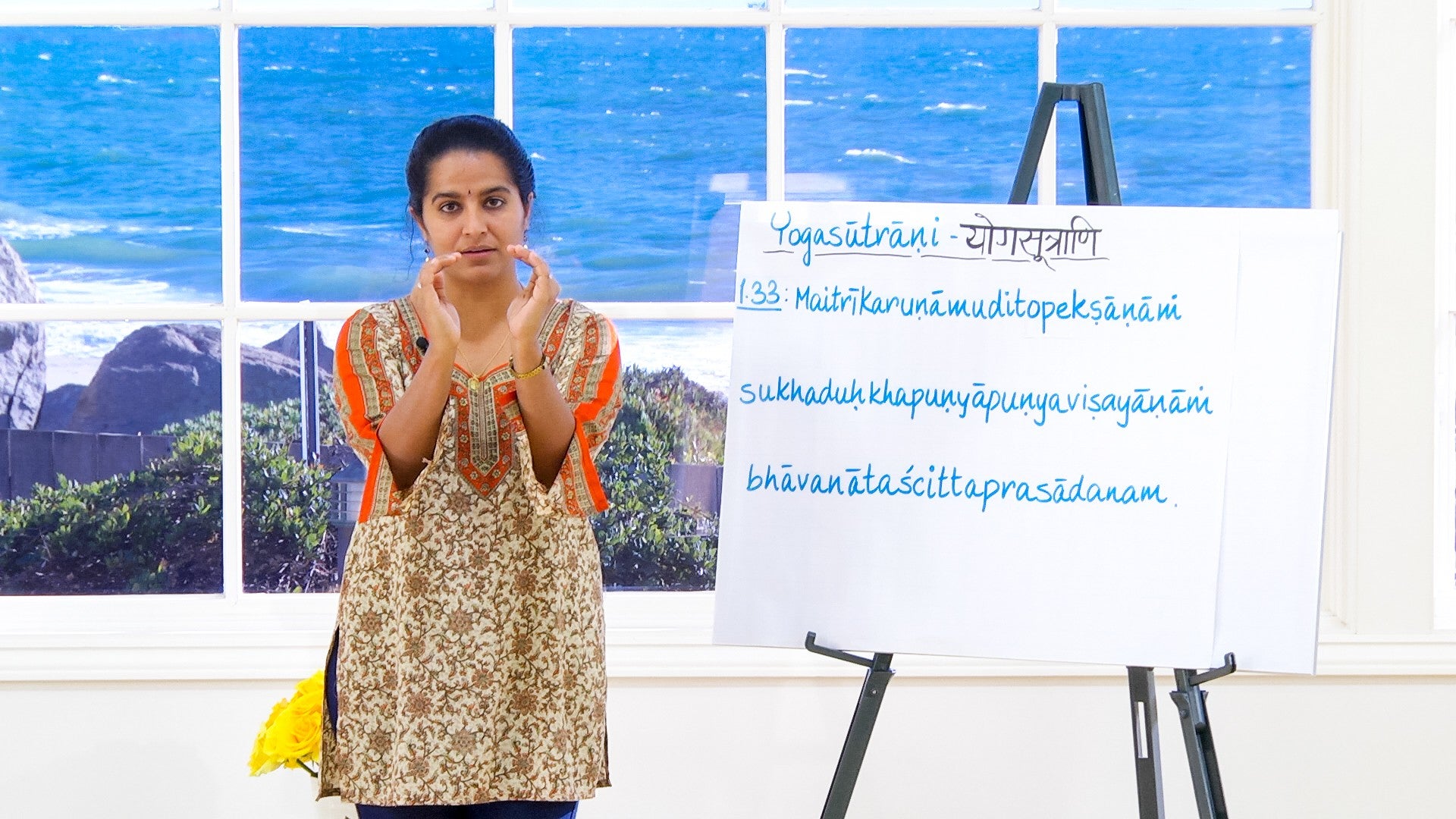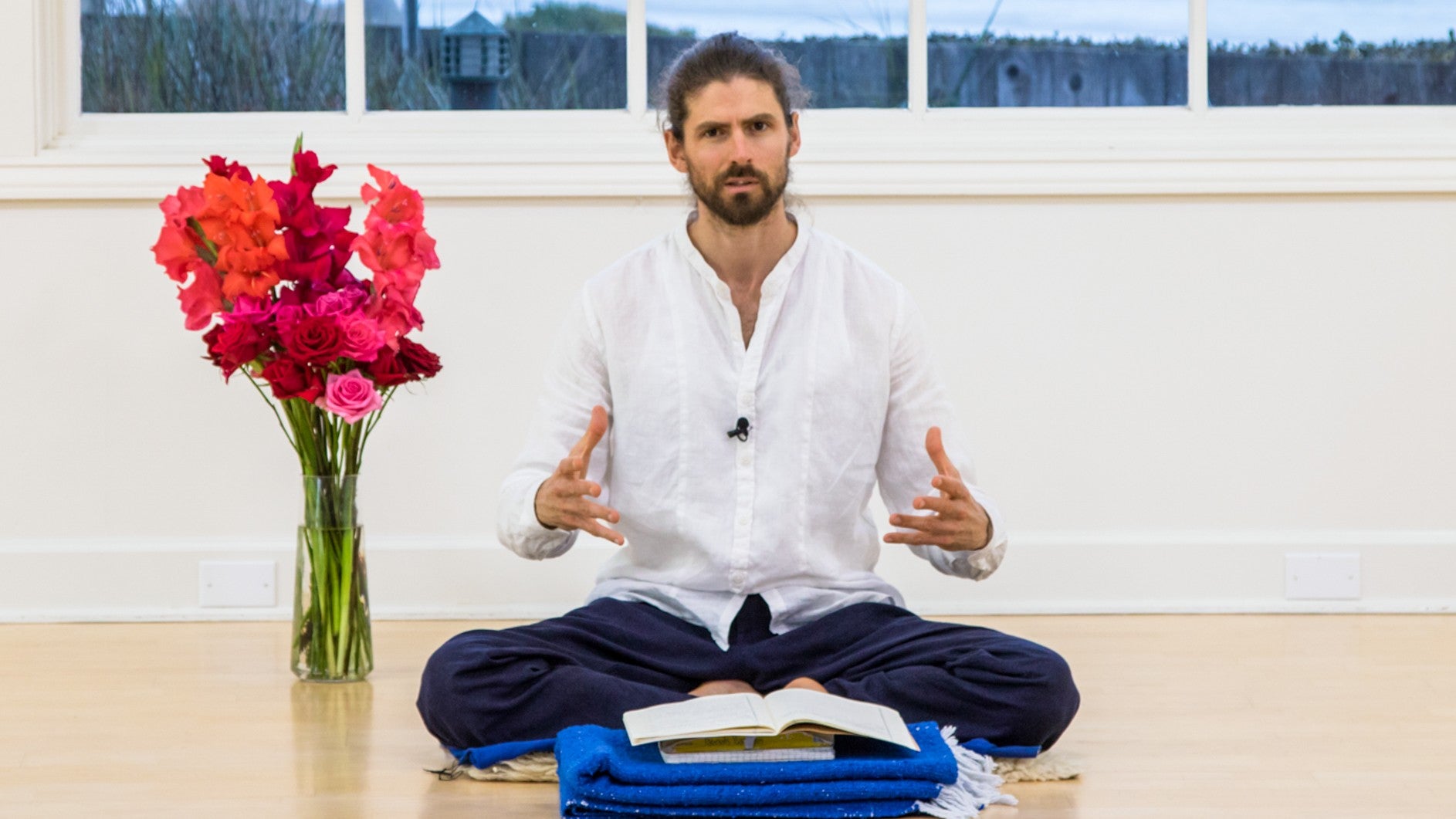
Yoga Sutra 1.33: Toward a Clear and Tranquil Mind
In what now feels like a lifetime ago, I recall a profound statement made by beloved yoga teacher, Kira Sloane. She said, “Yoga is relationship… The relationship you’re having is the relationship you are having.”
Her words perplexed me at first. And then, like any good teaching, it compelled me to look inside for the answer.
Her statement kept repeating in my mind, “The relationship I’m having is the relationship I am having…”
Finally, I arrived at a place to begin investigating: How I relate to this moment, to another human being, to my body, my mind, or my emotions is always happening within. It is happening within each of us.
The lens through which we view our relationships is based on the thoughts, feelings, and perceptions that occupy our mind. And let’s face it, the lens of our mind can get cloudy in this world. It is not another person’s responsibility to make you or me blank: happy, feel validated, more whole. While we may know this intellectually, in the realm of emotional relationships, where there are many moving parts, we often forget this foundational truth.
We have an opportunity to choose how we relate to, or “yoke” with, life. Is the relationship we are having the one we truly wish to create, or are we relating to life from auto-pilot conditioning that keeps us stuck on a merry-go-round of confusion when it comes to relationships?
Inward investigation of Sutra 1.33
In Sutra 1.33, Patanjali lays out the four essential attitudes required within relationships to bear the fruit of a clear and tranquil mind. They are: maitri (friendliness) toward those who are happy, karuna (compassion) toward those who suffer, mudita (joy) toward the virtuous, and upeksanam (impartiality) toward wrong-doers.
Nothing sounds more inviting than a tranquil, clear mind. It is the motivation that compels many of us to devote ourselves to the practice of yoga and meditation. Yet if you've ever cultivated anything in life, you know that cultivation is an ongoing process and requires patience and perseverance, a willingness to stick it out after the honeymoon phase, to follow through with purposeful action when challenges arise.
Admittedly, these four attitudes of friendliness, compassion, joy, and impartiality can be rocky ground to cultivate within relationships. Especially the relationship we have with ourselves. There is great nobility in selflessness, but it’s hard to reconcile “love your neighbor as yourself” when there is so little love extended toward our own humanness.
Let’s take a moment to consider the application of Sutra 1.33, beginning with our inner relationship, the one we have to the person we believe ourselves to be, the one looking back at us in the mirror each morning. If we can meet her with friendliness when she is happy, compassion when she suffers, joy when she is virtuous, and impartiality when she makes mistakes, I wonder how much more we will be able to extend these attitudes toward others.
Inner Friendliness
Patanjali tells us that when you see someone who is happy, extend friendliness to them. Turning this inward, ask yourself, are you friendly toward yourself, especially when you are happy?
Further, what sparks happiness in you? True, unadulterated happiness? When you catch this wave of happiness, are there obstacles that keep you from experiencing an inner friendliness? Does happiness sometimes feel off-limits because there is such suffering in the world? Do you trust happiness?
Inner Compassion
The Buddha famously said, Life is suffering. No one is immune to the struggles and challenges life inevitably brings. The word compassion literally means to “suffer together." Can we meet the parts of ourselves that are troubled, bringing a neutral mind and compassionate heart to our own struggles? The Dalai Lama reminds us that love and compassion are necessities, not luxuries. Without them, humanity cannot survive. Do you give yourself grace in your suffering? How do you show compassion for yourself?
Inner Virtue
Patanjali also invites us to be uplifted and inspired when we witness someone doing great things in the world. This can be tricky when applied to our own life. Perhaps there is a fear that if we acknowledge the virtue within, it may lead to pride and arrogance.
I recall a familiar phrase growing up, “Don’t forget where you come from.” Growing up in a small town, this meant, don’t think you’ll ever accomplish anything too wonderful. In the world of social media, it is also easy to pretend to be virtuous. This can create confusion around what is real. How do you find a sense of internal joy when you create or accomplish something of virtue in this world...even if no one ever knows it was you who created it?
Impartiality is the fruit
In James Boag's teaching of Sutra 1.33, he points out that practicing friendliness (maitri), compassion (karuna), and joy (mudita) are non-negotiable in the experience of a clear and tranquil mind. The fruit of practicing these three attitudes is upeksha, or impartiality. These attitudes safeguard us from getting caught in self-judgment when we make a mistake, enabling us to naturally cultivate impartiality within and without. James reminds us, “In yoga, we don’t have to become anything we are not".
The way we see ourselves matters
It is a great blessing to share the gifts we have been given with others. So often in life, my prayer has been, “Lord bless me so that I may be a blessing.” Yet I know that if there are wounded parts of myself that are not integrated, the relationship will be codependent and disempowering for both parties.
The attitudes of Sutra 1.33 are a lifelong practice. It’s a journey rather than a fixed destination to “becoming” someone who is compassionate, friendly, joyful, and impartial. A clear and tranquil mind allows us to meet the moment - and ourselves - without resistance.
Comments
You need to be a subscriber to post a comment.
Please Log In or Create an Account to start your free trial.















